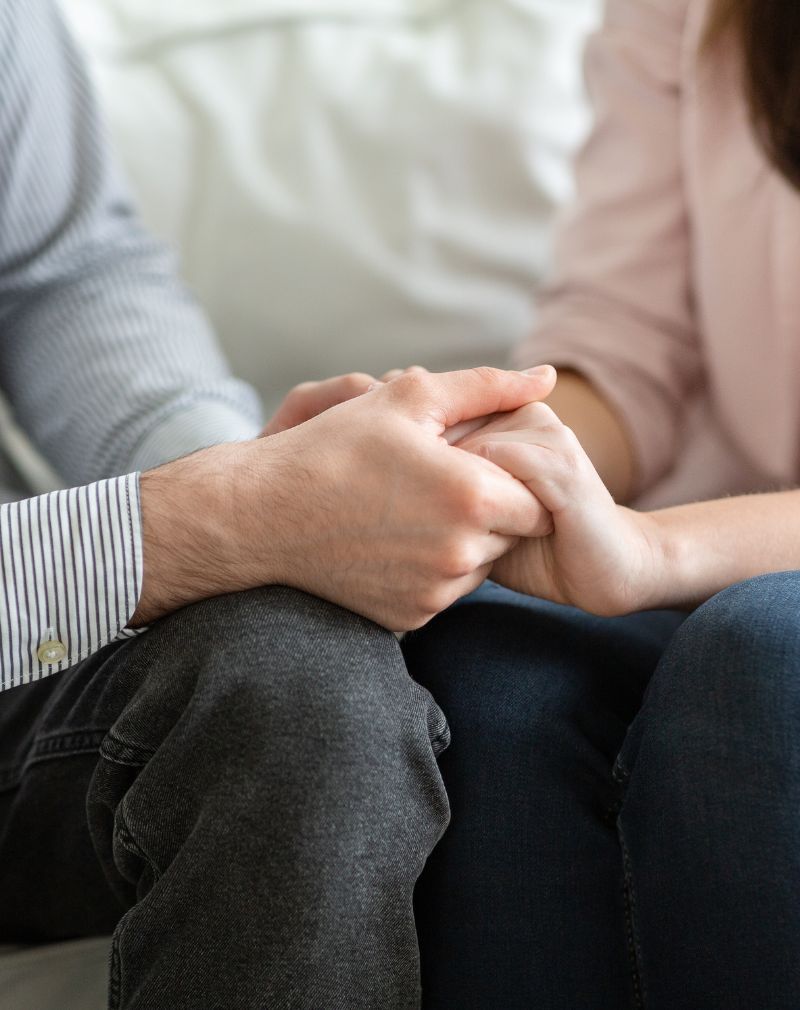Conflict is an inevitable part of any relationship. Whether it’s a minor disagreement about where to go for dinner or a major clash over core values, disagreements are bound to arise when two individuals come together. In fact, healthy conflict can be a catalyst for growth, understanding, and deeper connection. It provides an opportunity for couples to express their needs, clarify their expectations, and find common ground.
However, not all conflict is created equal. While healthy conflict is constructive and leads to resolution, unhealthy conflict can be destructive, eroding trust, intimacy, and the overall well-being of the relationship. Unhealthy conflict often involves patterns of blame, criticism, defensiveness, and contempt, leaving both partners feeling hurt, misunderstood, and disconnected.
Breaking the Cycle
Recurring conflicts, in particular, can be especially damaging to a relationship. When the same issues resurface repeatedly without resolution, it can create a cycle of frustration, resentment, and emotional distance. Over time, these unresolved conflicts can chip away at the foundation of the relationship, leaving couples feeling stuck, hopeless, and unsure of how to move forward.
At the American Wellness Center in Dubai Healthcare City, we understand the complexities of relationship conflict. Our experienced Couples’ Therapists provide a safe and supportive space for couples to explore the underlying causes of their recurring conflicts, develop effective communication and problem-solving skills, and build a stronger, more resilient relationship.
Unraveling the Roots of Recurring Conflicts
Recurring conflicts in relationships are rarely about surface-level disagreements. They often stem from deeper, underlying issues that remain unaddressed. Understanding these root causes is crucial for breaking the cycle of conflict and fostering a healthier, more harmonious relationship.
Unmet Needs and Expectations: The Hidden Triggers
At the core of many recurring conflicts are unmet needs and expectations. These can range from emotional needs, such as feeling loved, appreciated, and supported, to practical needs, such as shared responsibilities and decision-making. When these needs are not met, it can lead to feelings of frustration, resentment, and disappointment, which can easily escalate into conflict.
Communication Breakdowns
Communication is the lifeblood of any relationship, and breakdowns in communication can quickly lead to misunderstandings, misinterpretations, and hurt feelings. When couples struggle to express their needs clearly or fail to actively listen to each other, it can create a breeding ground for conflict.
Past Wounds and Unresolved Issues
We all carry emotional baggage from past experiences, and these unresolved issues can often resurface in our current relationships. Past hurts, traumas, and disappointments can trigger emotional reactions that fuel conflict, even if the current situation is not directly related.
External Stressors
Life is full of challenges, from work pressures and financial difficulties to health issues and family conflicts. These external stressors can put a strain on even the strongest relationships, leading to increased tension, irritability, and conflict. When couples are already struggling with unresolved issues, external stressors can exacerbate these problems and make it even more difficult to find common ground. We at The American Wellness Centre in Dubai Healthcare City understand the depth and complexities of couple conflicts and have a talented team of trusted Couples’ Therapists.
The Cycle of Recurring Conflicts
Recurring conflicts often follow a predictable pattern, a cycle that can be difficult to break without intervention. Understanding this cycle is the first step towards resolving these conflicts and building a healthier relationship.
The Escalation of Emotions
The cycle typically begins with a minor disagreement or trigger, which quickly escalates as emotions intensify. Frustration can turn into anger, and anger can fester into resentment. As emotions spiral out of control, communication breaks down, and partners may resort to hurtful words or actions.
The Blame Game
In the heat of the moment, it’s easy to fall into the trap of blaming our partner for the conflict. This blame game involves shifting responsibility and avoiding accountability for our own role in the situation. This not only prevents resolution but also fuels further resentment and disconnection.
The Withdrawal and Avoidance Dance
As the conflict escalates, one or both partners may withdraw emotionally or physically. This avoidance dance creates distance and disconnection, making it even more difficult to address the underlying issues. The silence and lack of communication can further exacerbate the problem, leaving both partners feeling lonely and misunderstood.
The Temporary Truce
Eventually, the intensity of the conflict may subside, leading to a temporary truce. However, this is often just a brief respite before the cycle begins anew. Without addressing the root causes of the conflict, the same issues are likely to resurface, leading to another round of escalation, blame, withdrawal, and temporary resolution.
At the American Wellness Center in Dubai Healthcare City, our couples therapists can help you identify and break this cycle of recurring conflicts. We provide a safe and supportive space for couples to explore the underlying issues, develop healthy communication patterns, and build the skills necessary for lasting resolution.
Strategies for Resolving Recurring Conflicts
Resolving recurring conflicts requires a multi-faceted approach that addresses both the surface-level disagreements and the deeper, underlying issues. By developing effective communication skills, identifying and addressing unmet needs, healing past wounds, and developing healthy coping mechanisms for stress, couples can break the cycle of conflict and build a stronger, more resilient relationship.
Effective Communication
Effective communication is the cornerstone of conflict resolution. It involves not only expressing your own thoughts and feelings clearly and respectfully but also actively listening to your partner’s perspective with empathy and understanding. Active listening involves paying attention to both verbal and nonverbal cues, reflecting back what you hear, and asking clarifying questions. Empathy involves putting yourself in your partner’s shoes and trying to understand their feelings and needs. Assertiveness involves expressing your own needs and wants in a direct and respectful way, without resorting to aggression or passivity.
Identifying and Addressing Unmet Needs
Many recurring conflicts stem from unmet needs and expectations. To break the cycle, couples need to create a safe space for vulnerability, where they can openly express their needs and concerns without fear of judgment or criticism. This involves active listening, validation of each other’s feelings, and a willingness to compromise and find solutions that meet both partners’ needs.
Healing Past Wounds
Past hurts and unresolved issues can linger beneath the surface, fueling recurring conflicts. Healing these wounds requires forgiveness, both for ourselves and our partners. Forgiveness does not mean condoning hurtful behavior, but rather choosing to let go of resentment and anger so that we can move forward. It involves acknowledging the pain, communicating our feelings, and working towards understanding and reconciliation.
Developing Healthy Coping Mechanisms for Stress
External stressors can put a significant strain on relationships, making it more difficult to manage conflict effectively. Developing healthy coping mechanisms for stress, both individually and as a couple, is crucial for building resilience and maintaining a strong connection. This can involve activities such as exercise, mindfulness, spending time in nature, or engaging in hobbies and interests. Couples can also develop shared coping strategies, such as taking walks together, practicing relaxation techniques, or simply spending quality time together. The American Wellness Center (AWC) in Dubai Healthcare City recognizes the importance of fostering healthy relationships and empowering individuals to overcome challenges.
The Role of Couples Therapy in Resolving Recurring Conflicts
Couples therapy plays a crucial role in helping couples break the cycle of recurring conflicts and build healthier, more fulfilling relationships. It offers a safe and neutral space where couples can openly communicate their needs, concerns, and frustrations without fear of judgment or retaliation.
- Expert Guidance: Experienced therapists provide valuable insights into the underlying causes of conflict, helping couples identify patterns, triggers, and unhealthy communication dynamics.
- Personalized Strategies: Therapists work collaboratively with couples to develop personalized strategies for conflict resolution, tailored to their unique needs and challenges.
- Skill Building: Couples therapy equips couples with essential skills for effective communication, active listening, empathy, and problem-solving, empowering them to navigate future conflicts with greater ease and understanding.
Take the First Step
Recurring conflicts can erode the foundation of a relationship, leaving couples feeling disconnected, frustrated, and hopeless. However, by addressing these conflicts head-on and seeking professional help, couples can break free from destructive patterns, heal past wounds, and build a stronger, more resilient bond.
Couples therapy offers hope and healing, empowering couples to create a more positive and fulfilling future together. If you and your partner are struggling with recurring conflicts, don’t hesitate to reach out to the American Wellness Center in Dubai Healthcare City. Our compassionate and experienced therapists are here to support you on your journey towards a healthier, happier relationship. Contact Us Today!



